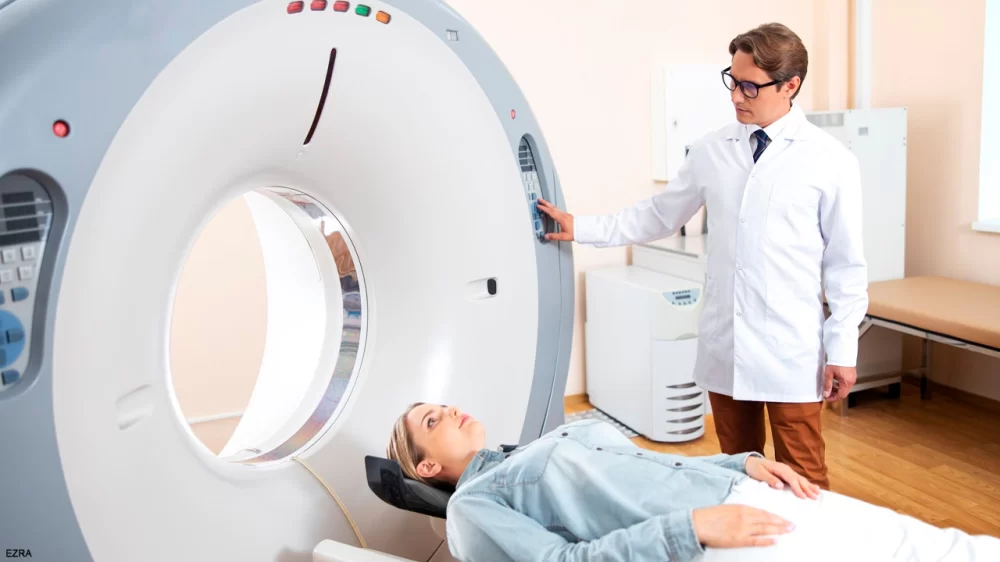Understanding Heart Disease and Why Early Detection Matters
Heart disease remains one of the leading causes of death worldwide, with millions of people affected every year. But what if we could detect the warning signs of heart disease before it becomes life-threatening? Early detection is key to preventing and managing heart disease effectively. Whether you are experiencing symptoms or simply looking to monitor your heart health, recognizing the signs early on can help reduce complications down the road.

1. Key Risk Factors for Heart Disease
Before diving into early detection methods, it's crucial to understand the risk factors that contribute to heart disease. These risk factors can help you assess whether you're at greater risk and need to take preventive measures. Common risk factors include:
- High Blood Pressure: Often called the "silent killer," high blood pressure puts excessive strain on the heart, increasing the risk of heart attacks and strokes.
- High Cholesterol: Elevated levels of cholesterol can lead to the buildup of plaque in your arteries, making it harder for blood to flow properly.
- Smoking: Smoking damages the blood vessels and increases the risk of heart disease significantly.
- Diabetes: Having diabetes can increase the likelihood of developing heart disease, particularly if blood sugar levels are not well-controlled.
- Family History: Genetics plays a role in heart health, so if heart disease runs in your family, you may be at higher risk.
By understanding these risk factors, you can better monitor your health and take proactive steps toward heart disease prevention.
Atlanta Heart Specialists
atlanta heart specialists
4375 Johns Creek Pkwy #350, Suwanee, GA 30024, USA

2. Heart Disease Symptoms to Look Out For
While heart disease may not always show noticeable symptoms early on, being aware of the common signs can make a significant difference. Here are some symptoms that could indicate an underlying heart problem:
- Chest Pain: One of the most common symptoms of heart disease, chest pain can feel like pressure, tightness, or discomfort in the chest area.
- Shortness of Breath: Difficulty breathing or feeling winded during normal activities could be a sign of heart disease.
- Fatigue: Extreme tiredness that doesn't improve with rest could indicate heart issues.
- Dizziness or Lightheadedness: Feeling faint or dizzy, particularly when standing up, can signal problems with the heart's ability to circulate blood effectively.
- Swollen Legs and Ankles: Retaining fluid in the legs can be a sign that the heart is struggling to pump blood properly.
If you notice any of these symptoms, it's important to consult a healthcare provider immediately for further testing and evaluation.
3. Early Detection Methods: Heart Health Screenings
One of the most effective ways to detect heart disease early is through regular heart health screenings. These screenings can help identify potential issues before they develop into more serious conditions. Here are some common methods for early detection:
- Blood Pressure Check: Regular monitoring of blood pressure is essential for detecting hypertension, a key risk factor for heart disease.
- Cholesterol Test: A cholesterol test measures your levels of LDL (bad cholesterol) and HDL (good cholesterol) to assess your risk for heart disease.
- Electrocardiogram (ECG): An ECG records the electrical activity of your heart and can identify arrhythmias, heart attacks, and other issues.
- Stress Test: This test involves exercising on a treadmill while monitoring the heart's response to physical activity, helping to detect problems with blood flow.
- Echocardiogram: Using sound waves, this test creates an image of the heart, allowing doctors to check for any structural problems, such as heart valve issues.
Regular screenings can provide early warning signs that can help prevent major heart-related events.
4. Lifestyle Changes for Heart Disease Prevention
Even if you don't have symptoms or a diagnosis yet, making lifestyle changes can significantly reduce the risk of heart disease. Here are some key changes you can make:
- Healthy Diet: Eating a diet rich in fruits, vegetables, whole grains, lean proteins, and healthy fats can support heart health.
- Regular Exercise: Engaging in physical activity for at least 30 minutes a day helps to keep the heart strong and reduces the risk of high blood pressure and cholesterol.
- Smoking Cessation: Quitting smoking is one of the most important steps you can take to reduce your heart disease risk.
- Manage Stress: Chronic stress can have a negative impact on your heart health, so practicing relaxation techniques like meditation and deep breathing can help.
- Weight Management: Maintaining a healthy weight through diet and exercise can lower the risk of heart disease and diabetes.
Incorporating these healthy habits into your daily routine can play a significant role in maintaining heart health and preventing disease.
5. The Role of Genetics in Early Heart Disease Detection
Your family history plays an important role in your heart health. If heart disease is common in your family, it’s crucial to be proactive in monitoring your health. Genetic testing can sometimes offer valuable information about your risk for inherited conditions like familial hypercholesterolemia (high cholesterol) or heart disease-related gene mutations. Understanding your genetic risk can help you take early preventive measures and discuss with your healthcare provider about personalized prevention strategies.
6. The Importance of Regular Checkups
Even if you feel healthy, regular checkups with your doctor are vital for detecting heart disease early. Many people may not show symptoms of heart disease until it reaches an advanced stage, so it's essential to stay on top of your heart health with regular screenings and medical visits. During a checkup, your doctor can evaluate your heart health, recommend tests, and guide you on the best ways to reduce your risk.
Conclusion: Stay Ahead of Heart Disease with Early Detection
Heart disease doesn't always come with warning signs, but early detection methods can help you stay ahead of potential problems. By understanding the risk factors, recognizing the symptoms, and taking advantage of available screenings, you can reduce the impact of heart disease and protect your long-term health. Make it a priority to monitor your heart health and adopt healthy lifestyle habits to prevent complications before they occur. The sooner you act, the better the chances of managing heart disease and living a healthier life.






















Deborah Heart and Lung Center
deborah heart and lung center
200 Trenton Rd, Browns Mills, NJ 08015, USA